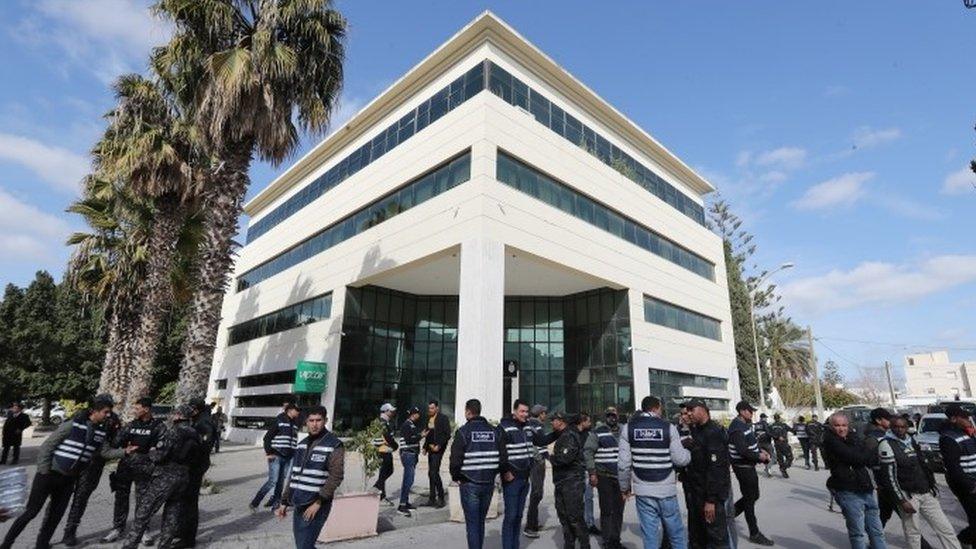Tunisia judges locked out of their offices after President Saied's decree
- Published

Police have closed the Supreme Judicial Council
The head of Tunisia's main legal body says they have been locked out of their offices, a day after President Kais Saied said he was dissolving it.
The judges had vowed to ignore the decree and carry on working, accusing the president of behaving illegally.
But on Monday, they found that police had locked their offices.
President Saied accuses the judges of bias and corruption, but his critics say he is leading the country towards authoritarian rule.
"Judges will not stay silent," said Youssef Bouzakher, head of the Supreme Judicial Council, on Sunday.
He said there was no legal framework to dissolve the body, which was set up in 2016 to guarantee the judiciary's independence.
Its members vowed to continue holding their seats.
In his late-night speech announcing that he would dissolve the council, President Saied said of the judges: "Their place is not where they sit now, but where the accused stand."
He began strengthening his grip on power in July last year, when he ousted the prime minister and froze parliament. He later moved to rule by decree and has promised to rewrite the constitution.
Supporters of the president have welcomed his moves to rid the country of a system they see as corrupt.
But his political opponents accuse him of moving towards authoritarianism and the speaker of the suspended parliament voiced solidarity with the judges.
Tunisia's 2011 uprising against the autocratic leader Zine al-Abidine Ben Ali was the first in a series of revolutions which became known as the Arab Spring.
Related topics
- Published4 August 2021
- Published26 July 2021